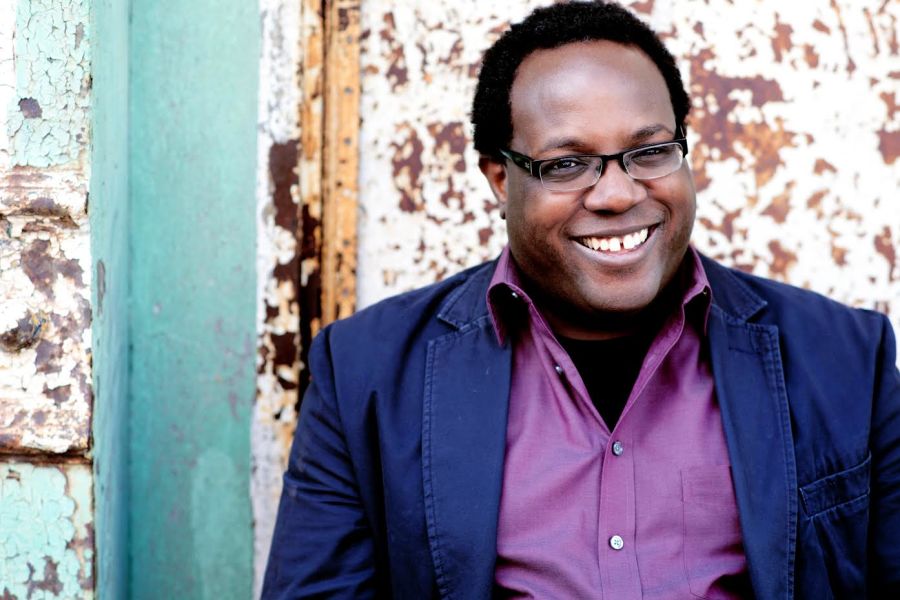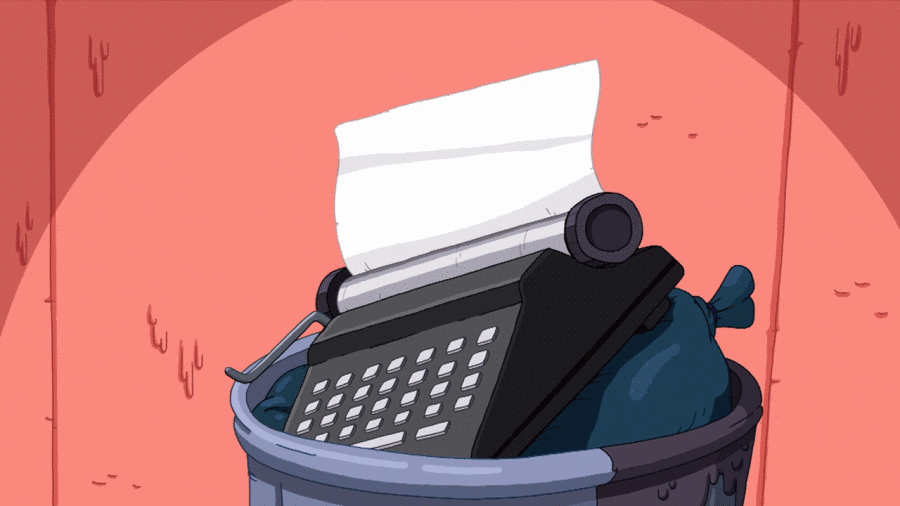It started as a private joke between me and a couple of friends, both theatre artists. Theatre, we joked, was like a college girlfriend: fiercely important, deeply loved, but fickle, tempestuous, difficult. Theatre came into our lives at a key early point, shook up our ideas, our plans for our lives. We followed her to weird, out-of-the-way places, swore off other lovers, sacrificed to stay with her. When she smiled on us, it was like the sun dropped in to sit on your couch. But just as quickly, she’d dash our hopes and dreams. We were better for having known her, that’s for certain. But sooner or later, you break up with your college girlfriend. Sooner or later.
Sometimes later comes sooner.
It was with those same friends that I started referring to myself as “semi-retired.” There didn’t seem to be a good word for where I’d landed with playwriting. Like Hemingway said about bankruptcy, it happened gradually and then suddenly. In the last few months, I slid from a “semi-retired” playwright to a fully retired one. I can’t really pinpoint the moment that happened. But it has.
Allow me a moment of pretension: One of my favorite movies, Mr. Jealousy by Noah Baumbach (if you can find it, watch it), features a quote from Flaubert (told you it was pretentious): “In every parting, there comes a moment when the beloved is already gone from us.” You wake up one day and your college girlfriend has slipped out the door and you’re missing a black T-shirt; what you have left is an unfortunate tattoo and a really great mixtape.
In fact, I started writing plays in college. Before then, I’d written short stories and poems. I did theatre as a kid, up through high school, but it was separate from writing. I read plays, and I understood that people wrote plays, but it never occurred to me that I could write plays.
I went off to college, aiming to become the next—I don’t know, Raymond Carver? (He was big back then.) But somehow, all of my friends were theatre majors. I can remember the moment, the moment I thought, “Hey. I want to do this.” I was sitting in the lobby of the one of the campus theatres watching the understudy run-through of Jesus Christ Superstar. There was no set, minimal costume pieces, just a bunch of 19-year-olds running around. And it was glorious. By the time it was done, I wasn’t an English major anymore. I was a theatre major. I was gonna be a playwright.
I moved to New York as quickly as I could, I joined a theatre company (or two or six), I went to grad school. And I wrote plays.
That’s what a playwright does. I had 10,000 hours to become the Beatles—right, Malcolm Gladwell? So I wrote. And wrote.
Between 1995 and 2014, I wrote 15 full-length plays and roughly 56 one-act plays. Of those plays, I had one full-length produced (rehearsed, designed and open to review). I had two “major” productions of one-acts, plus a few festivals and showcases, the occasional student production. I was commissioned twice. I was a playwright-in-residence twice. I have a handful of plays published, and get a small check a couple of times a year. Those come, mostly, from the student productions of one of my one-acts. I don’t keep a good ledger (I probably should), but I’d say that, from 2000 to 2013, I made less than $15,000 total from playwriting.
In plain, cold numbers, this is not the resume of a successful playwright.
But that’s a weird thing. I’ve written plays that I love, that other people loved, that various theatres devoted resources and effort to workshopping and developing. I wrote a lot. I was churning out a new full-length play a year for a while there and dropping 10-minute plays all over town. In some ways, I was incredibly successful. I worked with great artists, did work I believed in deeply. I got my laughs, got some tears, did some good.

I was also lucky enough to live off of work in theatre. After grad school, I started working in an Off-Broadway theatre that became my home, my artistic gym (nearly every play I ever wrote showed up on their stage), my second family. I worked there for 5 years, moved onto another theatre job, was a TCG Fellow for one glorious year in the happiest place on Earth. I helped found a festival for black writers. I went to conventions. I sat on panels and gave interviews. In many ways, I never really left that lobby back in college: I was sitting on the sidelines, watching great people do their thing.
I had the time of my life.
But that time ended. The hand-to-mouth life of theatre gave way to a more stable day job. I even took some time “off.” I tried thinking about what else I could do with my life. I found myself at my local bar every night. Not good. So I started a theatre blog, then started writing plays again. And I was right back in it. I found new friends, new collaborators. I went at it with vigor. I was smarter, a better writer, more experienced. It was all going to be different!
Except it wasn’t. Not at all.
There’s a big unasked question here: Was I any good as a playwright? That matters, more than how many checks I got or productions went up. Lots of great playwrights make no money. Lots of terrible playwrights get produced. On that spectrum, where do I land?
It’s tempting, oh, so tempting to say I was “ahead” of my time, or tangled in the very real barriers between playwrights and production. I could say that it’s hard out here for a black playwright—because it is most definitely hard out here for a black playwright. This could all be me taking my marbles and going home because the game is rigged. I could stop there.
But that’s not totally true. People liked my plays. They told me so. To my face. Often. Some people did (and maybe even still do) love my plays. But very few people wanted to produce the plays I wrote. Very, very few. I’d do readings and workshops and it always felt like the play was a draft away, or some specific rewrite away. But that draft never seemed to happen, or the rewrite never seemed to do the trick. The perfect play just receded into the distance, always around another corner.
Once, a very, very kind associate artistic director told me that that my plays are about the embrace that’s so needed but never seems to come. My career as a playwright seems to have had the same theme. Whether it’s my failing or the injustice of it all, or the unknowable will of Thespis—who knows? Who can ever know? All we can know is that I was a largely unproduced playwright. That kind of speaks for itself.
So how do you “retire” from something that didn’t really pay the bills, that you were never paid to do professionally, that didn’t lead to more lucrative work? It’s not like money-making is why any of us do this. There are easier ways to make money, like kidnapping or deep sea oil-mining. When people asked me, during all of those years, what I did, I responded, “I’m a playwright.” And I was! I was most definitely a playwright. I’m proud of being a playwright. That’s who I was. That’s how people introduced me. “This is J. He’s a playwright.”
But am I still one? Can I really say that? 2014 was the first year since I turned 21 that I didn’t even start a full-length play. I have no plans to write another one. Occam’s Razor would say, firmly, that I’m not a playwright because I’m not writing plays. Which seems so reductive, and yet…it is the thing. A playwright makes plays. More than being a writer, you’re a maker, carving something out of nothing, out of thin air and electric light. Yes, it’s a job that you “go” to, a calling, a vocation—all of those lovely words we use for the things we love to do but don’t get paid to do.
At the end of the day, though, it’s a thing that one does. If you’re not doing it, you’re not it.
I love theatre, but it’s also a near-constant heartbreak. There is, of course, the steady drumbeat of rejection, but beyond that, there’s the never-ending fight to make the American theatre a more just, more balanced, more honest place. There are the personal betrayals, the failed collaborations, the dashed dreams of theatre companies. These all take a toll. You can only get your heart broken so many times before the pieces don’t fit back together anymore. There are few more surer ways to get your heart broken than working in theatre.
The heartbreak can be so great that it drives us into the arms of other lovers. I moved out of New York to Los Angeles to pursue that other fickle lover: screenwriting. It’s the early days; the relationship is new, untested, at turns flirtatious and cold. But it could be something.
Other playwrights manage to keep their identity as a playwright intact, even when writing TV or films. It seems like every other day, some other publication discovers that playwrights write most of the TV we watch. They juggle the two worlds. But I’m letting go of one.
That probably says more about me than I would like. Maybe I am taking my marbles and going home. But maybe, just maybe, I’m growing out of an older version of myself. Into what…I do not know.
Letting go of playwriting is less about what I write when I sit down at my computer every day. It is letting go an idea of myself, an identity I had. I find it both terrifying and liberating. I keep wanting to leave a back door, some wiggle room. A way back in. I even procrastinated writing this essay because it makes so real.
If I’m not a playwright anymore, am I less interested in people, in conflict, in the kind of quiet, gentle storytelling that can only happen onstage? If I’m not a playwright, do I hang up my black turtlenecks?
How do you retire who you’ve been for half of your life? That’s what I find out now.
But the beloved is already gone. I’m happy to have the mixtape. I’m happy for the memories. Maybe, someday, we’ll run into each other, in front of a second-run movie theatre. Go for brunch and laugh about the bad old days. Let go of the hurts, the thousand natural shocks, the old pretensions (like quoting Shakespeare all the damn time). Just sit and enjoy each other’s company.
But to get there, I have to go through this door first: I retire as a playwright.
J. Holtham writes things in Los Angeles these days. You can find him on Twitter (@jholtham) or Tumblr (jholtham).


